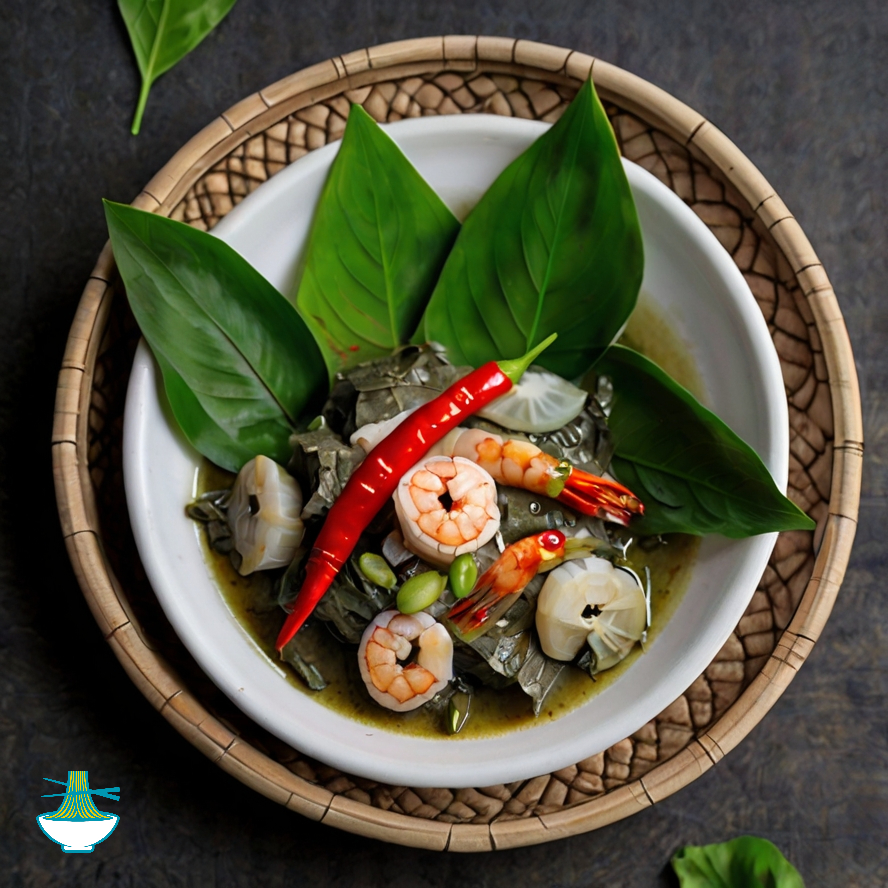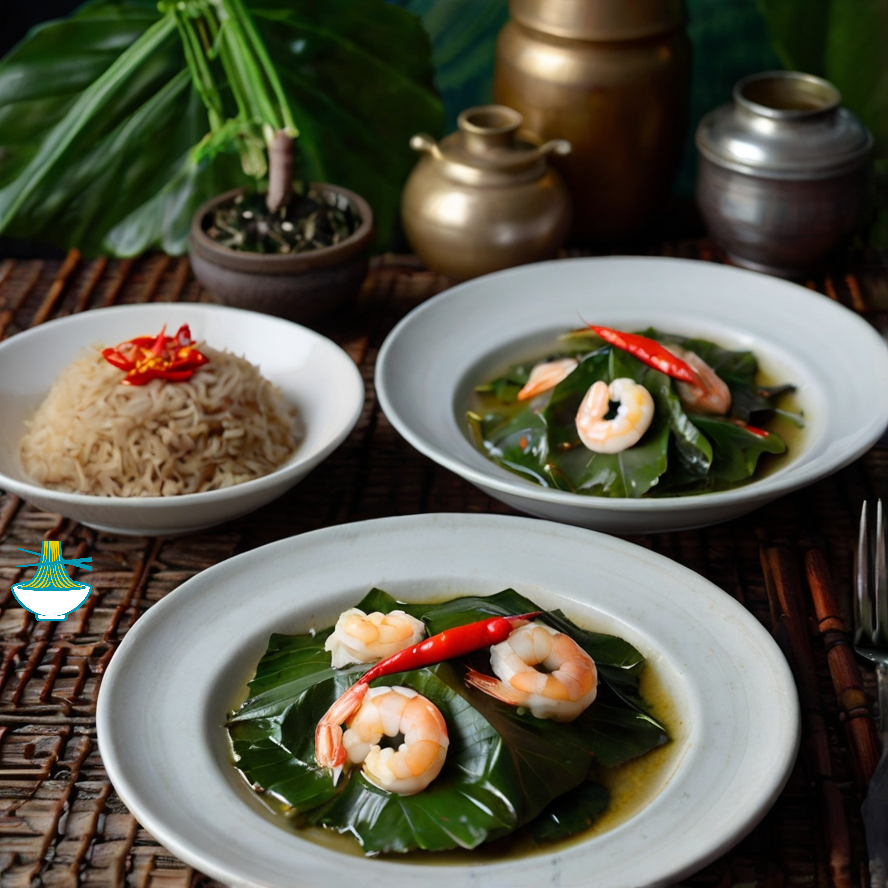Laing is a traditional Filipino dish made with taro leaves simmered in rich coconut milk, flavored with spicy chili peppers, savory shrimp paste, and often enhanced with tender meat or succulent seafood. Discover how to prepare this flavorful and aromatic dish at home with our easy-to-follow recipe.
Here's a recipe for Laing, a Filipino dish made with taro leaves cooked in coconut milk with chili peppers, shrimp paste, and optionally meat or seafood:
Ingredients:
- 1 pound taro leaves, washed and chopped
- 1 can (14 oz) coconut milk
- 2 tablespoons cooking oil
- 1 onion, chopped
- 3 cloves garlic, minced
- 2 tablespoons shrimp paste
- 1-2 cups water
- 2-3 red or green chili peppers, chopped (adjust to taste)
- Salt to taste
- Optional: 1/2 pound pork belly, sliced thinly (or substitute with shrimp or dried fish)
Instructions:
1- In a large pot, heat the cooking oil over medium heat. Sauté the onion and garlic until fragrant.
2- Add the shrimp paste and cook for another minute.
3- If using pork, add it to the pot and cook until it starts to brown.
4- Pour in the coconut milk and water. Bring to a simmer.
5- Add the taro leaves and chili peppers. Stir to combine.
6- Cover and simmer over low heat for about 30-40 minutes, or until the taro leaves are tender and the flavors have melded together. Stir occasionally to prevent sticking.
7- Season with salt to taste.
8- Serve hot with steamed rice. Enjoy your delicious Laing!
Nutritional Values:
Here are the approximate nutritional values for the ingredients used in the Laing recipe:
Taro leaves (1 pound):
- Calories: 140
- Carbohydrates: 32g
- Protein: 7g
- Fat: 0.5g
- Fiber: 8g
benefits: Rich in fiber, vitamins (A, C, E, and B6), and minerals (potassium, magnesium, and manganese). They promote digestive health, boost immunity, and support healthy vision.
Coconut milk (1 can - 14 oz):
- Calories: 660
- Carbohydrates: 18g
- Protein: 6g
- Fat: 68g
- Fiber: 0g
benefits: Contains healthy fats known as medium-chain triglycerides (MCTs), which can help boost metabolism and provide quick energy. It also contains iron, magnesium, and phosphorus, which are essential for bone health and muscle function.
Cooking oil (2 tablespoons):
- Calories: 240
- Fat: 28g
benefits:Cooking oils are calorie-dense, offering a concentrated source of energy. This is particularly beneficial for individuals with high energy needs, such as athletes.
Onion (1 medium):
- Calories: 44
- Carbohydrates: 10g
- Protein: 1g
- Fat: 0g
- Fiber: 2g
benefits:Onions can contribute to heart health by improving cholesterol levels, reducing blood pressure, and preventing the formation of blood clots. Their antioxidant properties also help protect the heart from damage.
Garlic (3 cloves):
- Calories: 13
- Carbohydrates: 3g
- Protein: 1g
- Fat: 0g
- Fiber: 0g
benefits:Garlic is a good source of vitamins and minerals, including vitamin C, vitamin B6, manganese, calcium, potassium, and iron. These nutrients support various bodily functions and overall health.
Shrimp paste (2 tablespoons):
- Calories: 40
- Carbohydrates: 6g
- Protein: 2g
- Fat: 1g
- Fiber: 0g
benefits: A good source of protein and omega-3 fatty acids, which are beneficial for heart health. It also contains vitamins and minerals like iron and calcium.
Pork belly (1/2 pound):
- Calories: 840
- Protein: 40g
- Fat: 72g
benefits: Provides protein, iron, and B vitamins. However, it is high in fat and calories, so it should be consumed in moderation.
Red or green chili peppers (2-3 peppers):
- Calories: 18-27
- Carbohydrates: 4-6g
- Protein: 1-2g
- Fat: 0-1g
- Fiber: 1-2g
benefits: Rich in vitamins (especially vitamin C), minerals, and antioxidants. They can help boost metabolism, aid in digestion, and may have anti-inflammatory properties.
These values are approximate and can vary based on the specific brands and quantities of ingredients used.


Comments